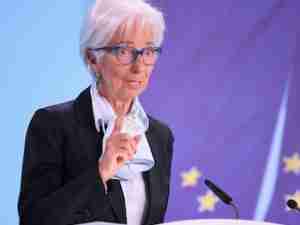Trade between Israel and Brazil slipped below $1 billion in 2009 from a peak of $1.6 billion in 2008 -- $1.2 billion of which were Israeli exports -- due to the global economic crisis.
But a new free trade agreement between Israel and the Mercosur bloc -- Brazil, Argentina, Paraguay and Uruguay -- goes into effect in early April. Israel is the first non-Latin American country to sign such a trade deal with Mercosur.
Brazil gave its final approval to the pact on March 4, a week after Paraguay.
"We will triple trade between Israel and Brazil by 2015," Paulo Skaf, president of the Federation of Industries of the State of Sao Paulo, said at a conference in Jerusalem attended by President Luiz Inacio Lula da Silva, Israeli President Shimon Peres and a group of Israeli and Brazilian business leaders.
Brazil is Israel's largest trading partner in Latin America, with a number of large Israeli companies already exporting to Brazil.
Defence contractor Elbit Systems is a supplier to Embraer , the world's third-largest aircraft manufacturer, while fertiliser maker Israel Chemicals and generic agrochemical company MA Industries have significant exports.
Lula said Israel was "an ideal partner" to help develop its semiconductor, nanotechnology and pharmaceutical industries.
"We hope to advance economic and business ties between Israel and Brazil as trade has increased significantly between our two countries in the past few years," he said.
Lula -- whose main goal of this visit is to promote Middle East peace and diplomacy over Iran's nuclear programme -- urged Israeli businesses to invest in Brazil, citing the country as one of the fastest growing in the world coming out of the downturn with growth of 5 percent forecast for 2010.
In particular, Lula said he wanted to entice Israeli engineers to Brazil, in light of Israel's 4,000 engineers.
He said Brazil was seeking to widen economic ties with Israel ahead of the 2014 World Cup and 2016 Olympics.
Lula, who expects 2 million new jobs to be created in Brazil, said he would soon be launching a new investment programme and hoped Israel would take an active part.
"Although Israel and Brazil may be distant from each other geographically, we can grow close through economic and scientific cooperation," Peres said.
"Brazil has a strong and stable economy and we are willing and happy to cooperate with you in every sector including science, defense, high-tech, agriculture, and advanced space technologies," he said to Lula.
On Iran, Peres told Lula that "crippling economic sanctions" were needed to halt Iran's nuclear programme. But Lula has rejected Israeli and U.S. calls for sanctions. (Reuters)






